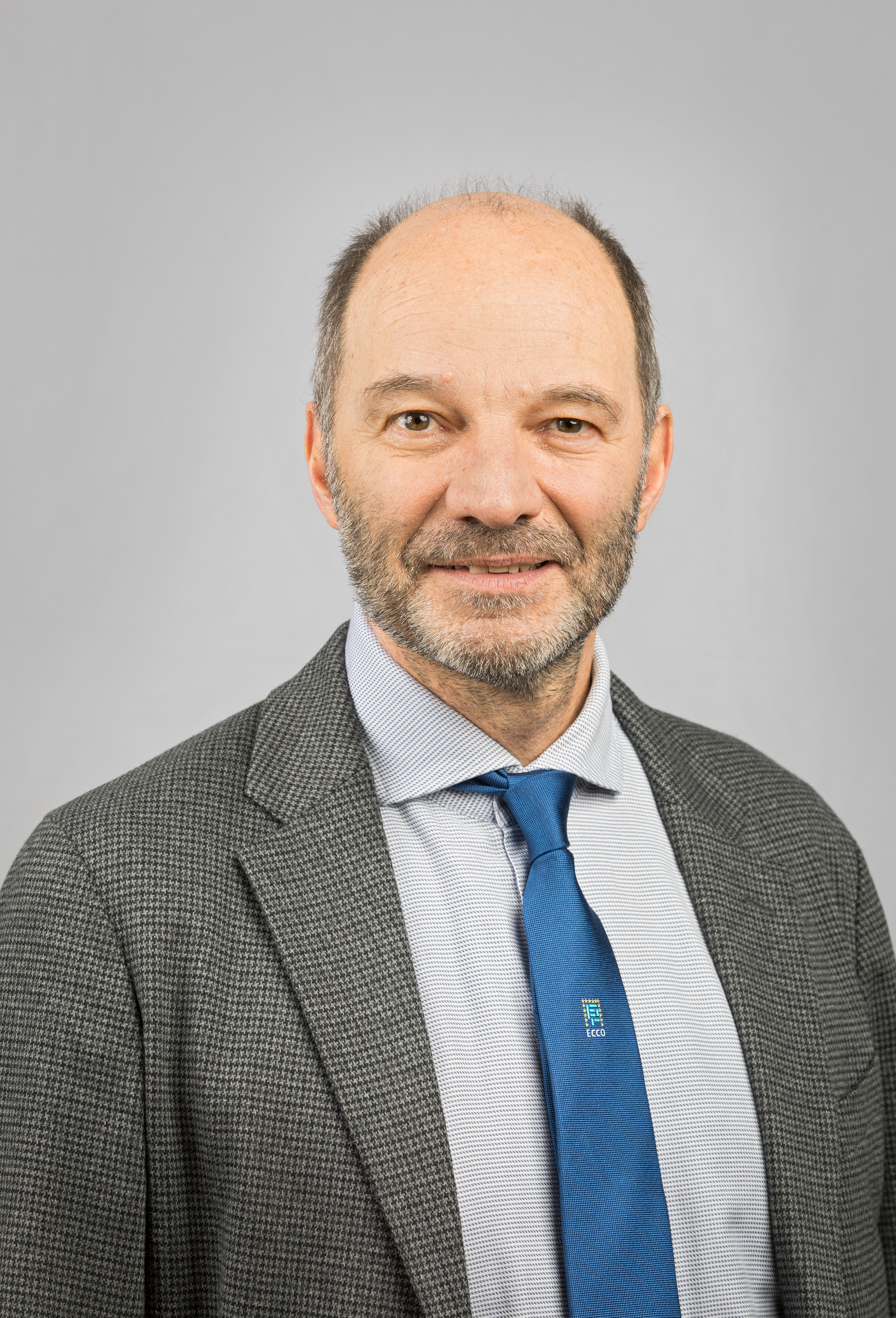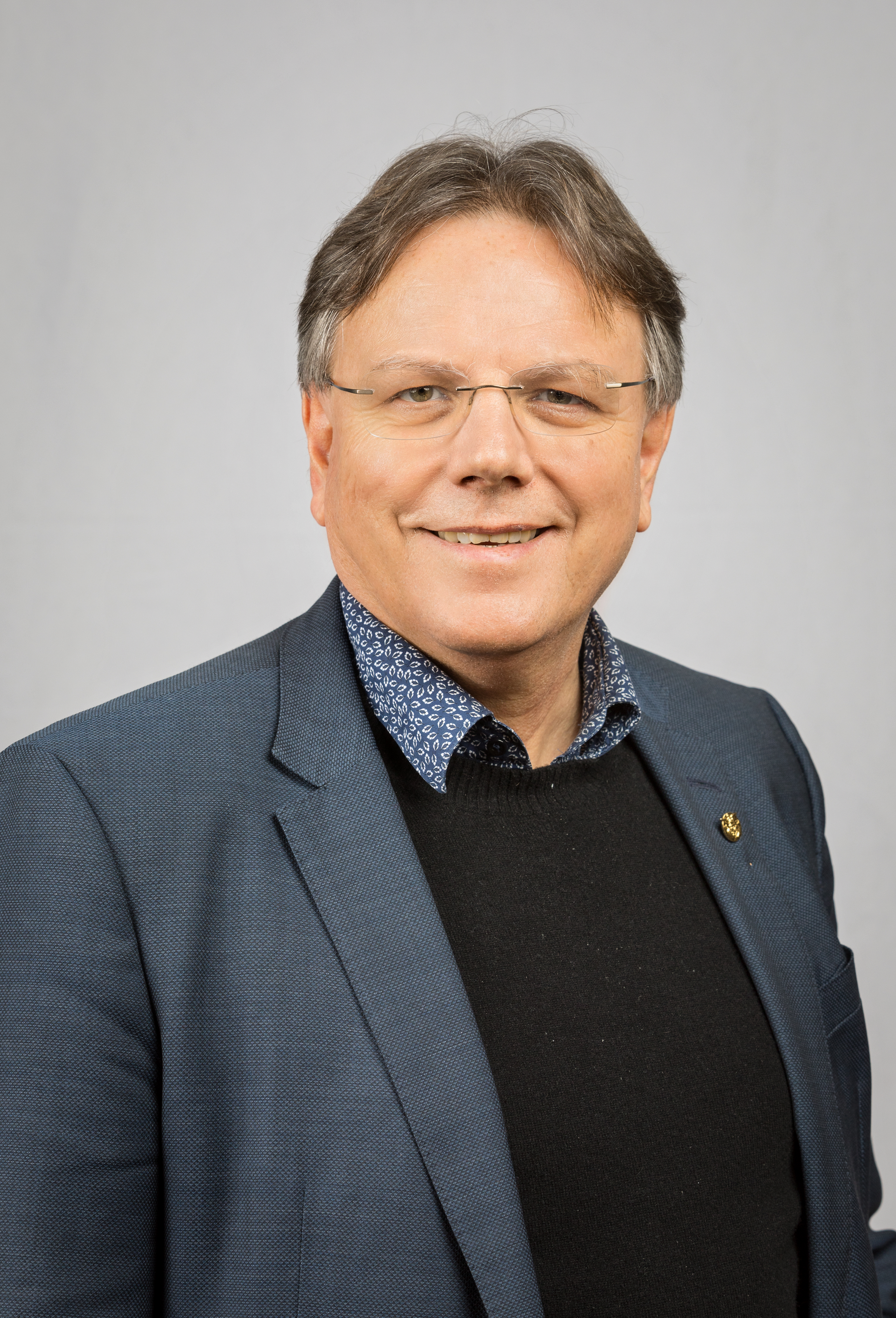Interview with Gerhard Rogler: UR-CARE - recent developments, challenges and perspectives for the future
Edouard Louis, ECCO News Editor
 Edouard Louis Edouard Louis© ECCO |
We are pleased to introduce you UR-CARE Steering Committe Chair, Gerhard Rogler. Gerhard Rogler is Professor at University Hospital Zurich, being the Director of the Department of Gastroenterology and Hepatology.
Gerhard has been a very active member at ECCO for many years and now he overtook the task to be the Chair for UR-CARE Steering Committee.
You assumed the position of UR-CARE Steering Committee Chair at the beginning of the year after having accompanied the project for many years. Could you please share your thoughts and views regarding UR-CARE?
From the beginning I was sure that UR-CARE is a great idea. We had to face many legal issues as we had to deal with different legislations in many countries. In addition, the European legislation with respect to data protection has changed during recent years. Therefore, the early days of UR-CARE were not easy, but I always believed in this endeavour. I remember the discussions when I was still Scientific Officer on the Governing Board: there were some concerns that UR-CARE would not “fly”. But such big projects need time to develop. Now we are at a point where UR-CARE can already provide a huge data set, many papers are being published based on this data set and a number of prospective studies are using UR-CARE as a trial platform.
What is your personal experience with UR-CARE?
Currently we are drawing up the contracts for our own IBD centre. We will feed our Swiss IBD cohort study and UR-CARE in parallel because there are different features and I want to support both projects. I have worked a lot with the test version and in my opinion it is user friendly and, once a patient has been stored, updates are easy to make. It also provides great centre statistics and helps in estimating how many patients could be included in clinical trials. This is an important feature for a reference centre and a big trial centre such as Zürich.
|
|
Could you update us about the current composition of the UR-CARE Steering Committee?
Since Ebbe Langholz has completed his term as UR-CARE Steering Committee Chair and Javier Gisbert has also completed his term in the committee, we have two open positions. Current members are André D'Hoore from Leuven, as it is important to have a surgeon on board, and Naila Arebi, who we all know as somebody who leads many quality improvement initiatives in IBD.
Additionally Britta Siegmund (ECCO President) and Fernando Magro (ECCO President Elect) are following the developments as external support to UR-CARE.
How would you summarise the development of the UR-CARE project up until now?
I would say that UR-CARE is really taking off currently! There is a great pace of development. It was possible to synchronise UR-CARE with a number of big ENEIDA centres, so the database has grown rapidly. Many centres have expressed great interest in joining. This has been delayed slightly as we had organised an audit to ensure data security and learned that we can still make improvements here . We want to have really high standards for data protection. This has now been implemented and the material for participation is ready to be sent out. The number of manuscripts published with UR-CARE data is increasing and, as I have already mentioned, we now have prospective studies running using UR-CARE as a trial data platform.
What is the current state of country representation on the UR-CARE platform?
Currently 75 centres from 20 countries contribute to UR-CARE. Besides European countries, high-volume centres from Egypt and Uruguay are contributing. Around 35,000 patients had been registered by the beginning of May.
How do you see the development of research projects on the UR-CARE platform?
As mentioned, we now have both retrospective projects (using the already exisitng data) and prospective projects (collecting new data and using UR-CARE as a study platform). Among the prospective studies are MIRACLE and PASS-TOFA. For the retrospective studies there is a framework of regulations that is not difficult. All pseudonymised medical and demographic patient data entered and processed in UR-CARE become available for use in retrospective studies.
Depending on the level of the study, the UR-CARE Steering Committee usually reviews the study proposal to determine feasibility and to safeguard proper use of the platform.
How can centres proceed if they interested to join the UR-CARE platform?
The easiest way is to write an email to This email address is being protected from spambots. You need JavaScript enabled to view it.. In order to become a UR-CARE centre, it is necessary to negotiate three steps with the support of the UR-CARE team: submission of the UR-CARE project to your Ethics Committee; signature of the contract by the hospital director, the legal department representative of the hospital and IBDIM, which is the business unit managing the UR-CARE platform; and completion and signature of the nomination form, which will assign one or two people from the site as Administrator(s) of the platform. That’s all. The impact of UR-CARE will grow. So it is a great time to join in now.



 Gerhard Rogler
Gerhard Rogler